 SHOPPING
SHOPPINGSun Care Is Skincare: Top Rated Face Sunscreens By Real Users — Shop Now
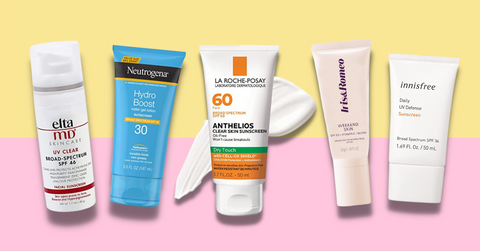
May 26 2022, Published 1:43 p.m. ET
All products featured on OK! Magazine are independently selected by our editors. However, when you buy something through our retail links, OK! Magazine may earn an affiliate commission.
Get out your calendar, because there’s yet another national holiday to keep track of — but this time, it’s an important one. National Sunscreen Day is May 27, which coincidentally falls right next to Memorial Day Weekend this year. Whether you have plans for the holiday weekend that involve soaking up the sun or not, protecting yourself against the sun’s harmful UV rays is something to celebrate year round. So, ahead of the long weekend and summer season, we’ve rounded up some of the internet’s most beloved sunscreens that have earned the stamp of approval by real users for anti-aging and sun protection. Grab your favorite sunnies, because it’s time to block out the haters (a.k.a. damaging UV rays) with these must-have sunscreens.
What To Look For In A Sunscreen
When it comes to determining the best sunscreen for your face and body, it’s always best to consult with a specialist like a dermatologist. However, if you don’t have access to a dermatologist, don’t let that deter you from finding a sunscreen that works with your lifestyle. Most dermatologists will agree that the best sunscreen is one you will remember to apply daily. That being said, there are a few things to look for when picking out a sunscreen.
- SPF Protection Factor (SPF 30, SPF 50, etc.)
- UVA/UVB Protection (typically labeled broad spectrum or full spectrum)
- Water Resistance
- Mineral vs. Chemical ingredients (such as oxybenzone-free)
- Non-Comedogenic (for oily or acne prone skin)
- Finish features such as matte, tinted or glow
You can spend hundreds on a well respected and reputable sunscreen brand, but it's useless if you do not apply the sunscreen as directed — and yes, that means wearing sunscreen daily, whether you’re inside or outside! Of the many products we buy for anti-aging efforts, wearing sunscreen daily is the best line of defense against harmful UV rays (blue light included!) that cause sun damage, wrinkles and other skin concerns.
Best Mineral Face Sunscreens
Mineral sunscreens are great for those wanting to eliminate chemicals from their health and beauty products as well as those looking for a zinc oxide-based sunscreen. Mineral sunscreens are friendly to sensitive skin and are an optimal choice for those with concerns like rosacea. These are some of the most highly rated mineral sunscreens for the face by real users.
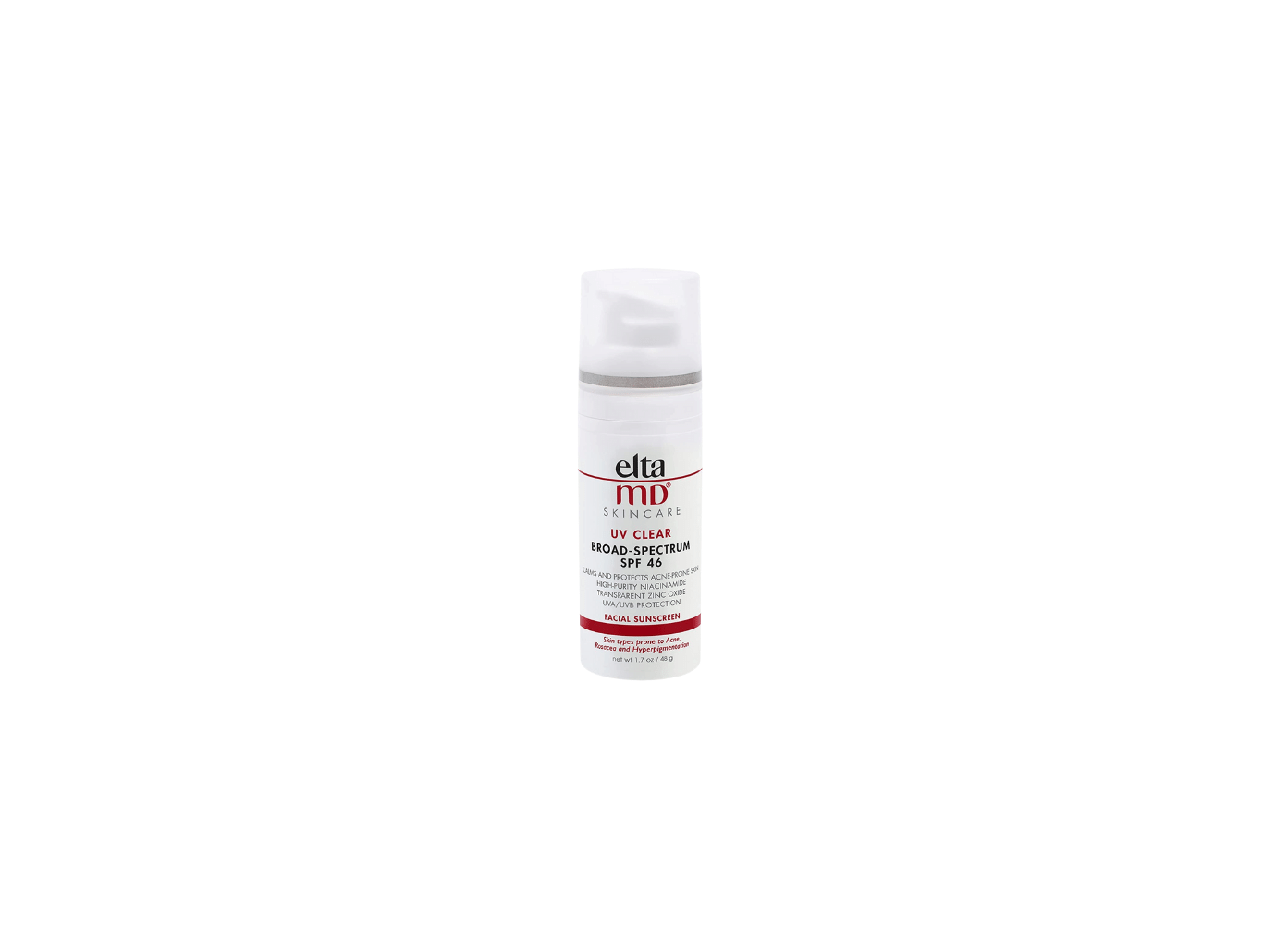
EltaMD UV Clear Facial Sunscreen Broad-Spectrum SPF 46 retails for $37.05 at amazon.com.
Real Review: “This is the best sunscreen I’ve ever use[d] on my face! It’s so thin and moisturizing. A little goes a long way so if you have a white cast you may have used too much. I have deep brown skin and there is no cast left.” - Jrodriguez, Amazon customer
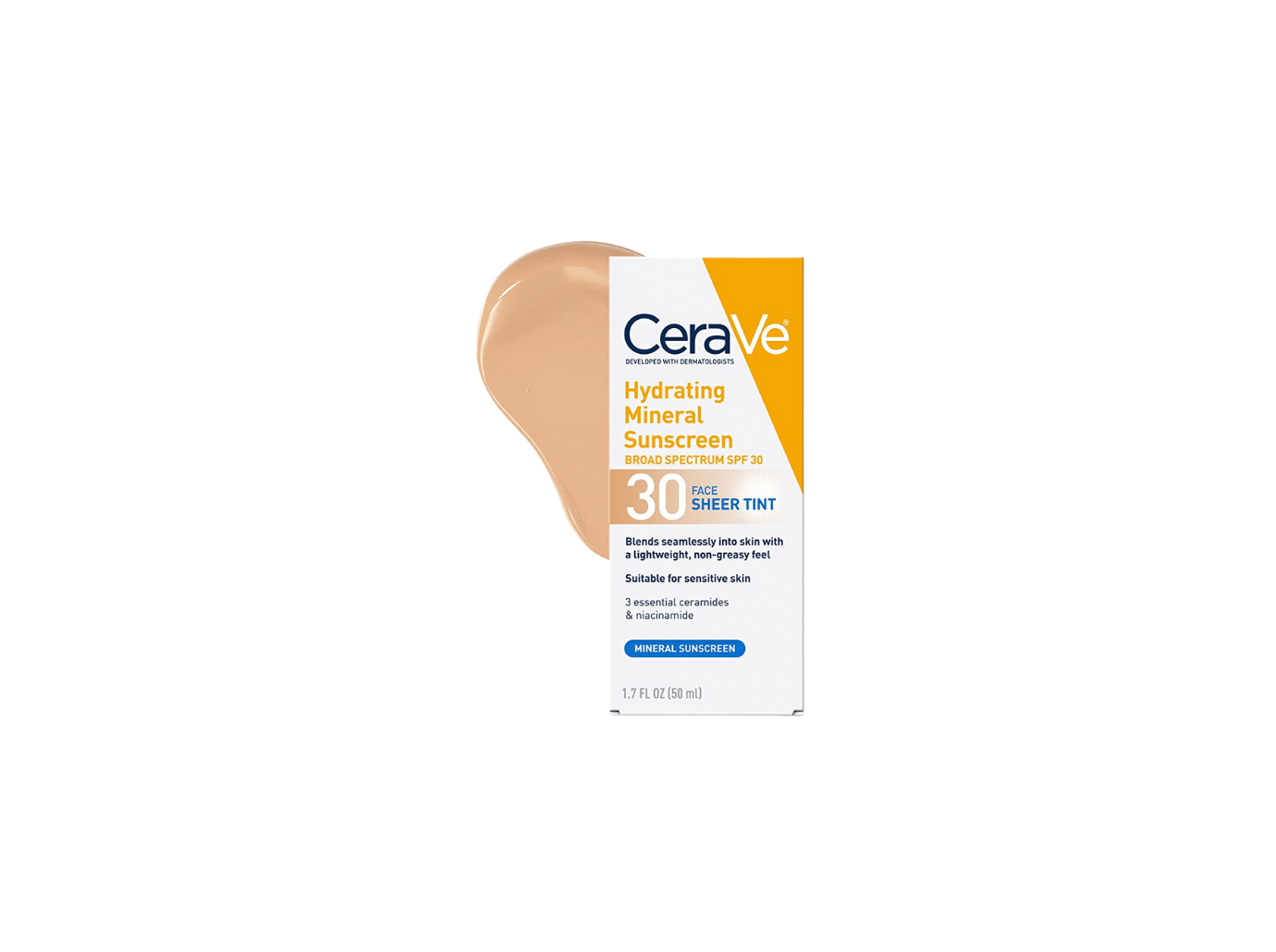
CeraVe Tinted Sunscreen with SPF 30 retails for $13.97 at amazon.com.
Real Review: “This stuff is amazing. I always have a hard time finding sunscreen that won’t pill up on top of my moisturizers ... [is] unscented, and doesn’t leave a white cast. If you have the same issues then this might be great for you! I have light-medium skin tone and matches me perfectly. Also, this is way cheaper than all of my Sephora SPF skin tints/foundations without additional fragrance. A+++” - Inga H, Amazon customer
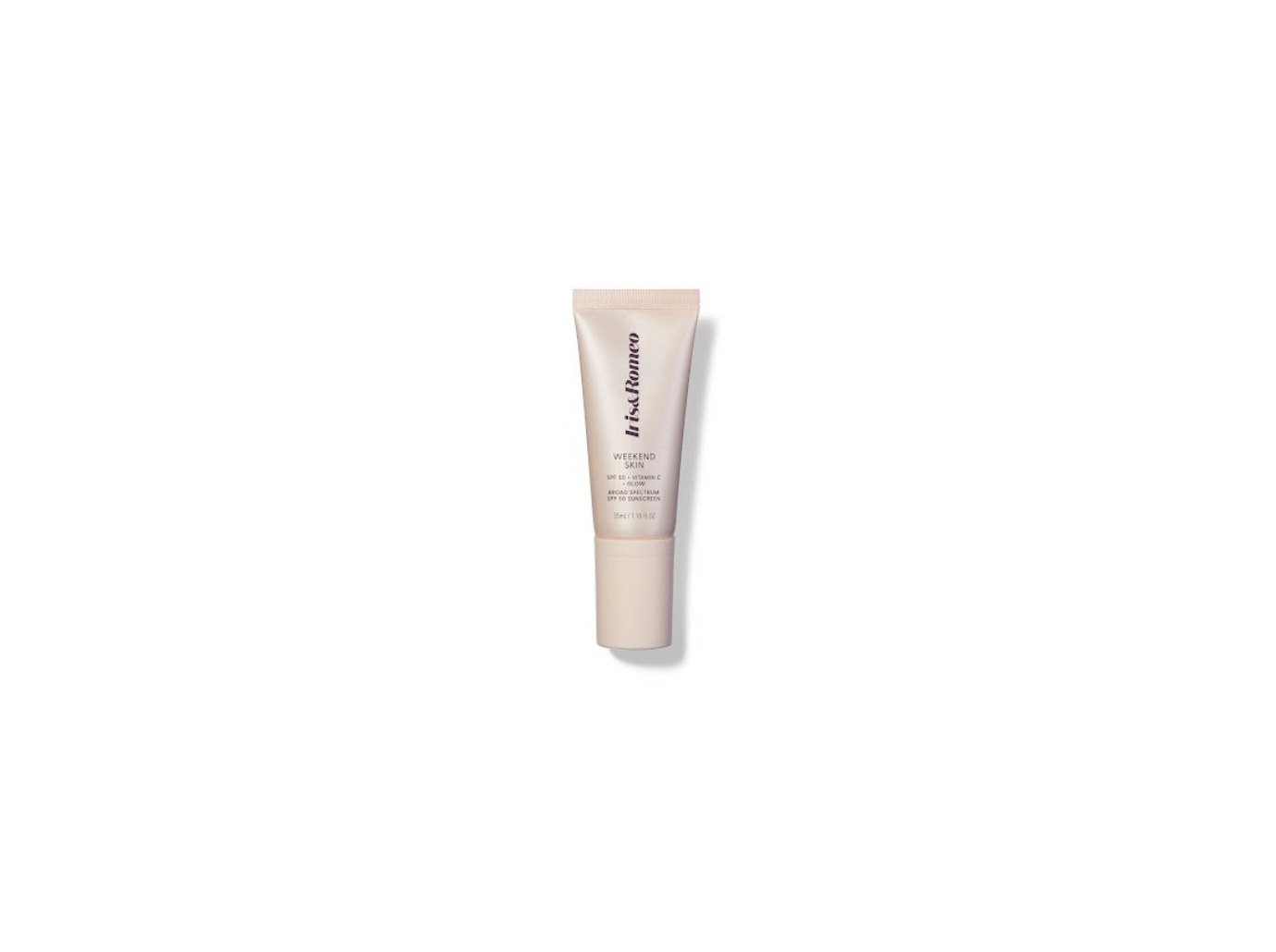
Iris & Romeo Weekend Skin SPF 50 + Vitamin C Glow retails for $47 at irisandromeo.com.
Making waves as a mineral sunscreen with multiple benefits is the Weekend Skin SPF 50 + Vitamin C Glow mineral face sunscreen by Iris & Romeo. Not only does does it protect sensitive skin from harmful UV rays, but it delivers a punch of vitamin C and niacinamide for a bright and clear glow from within.
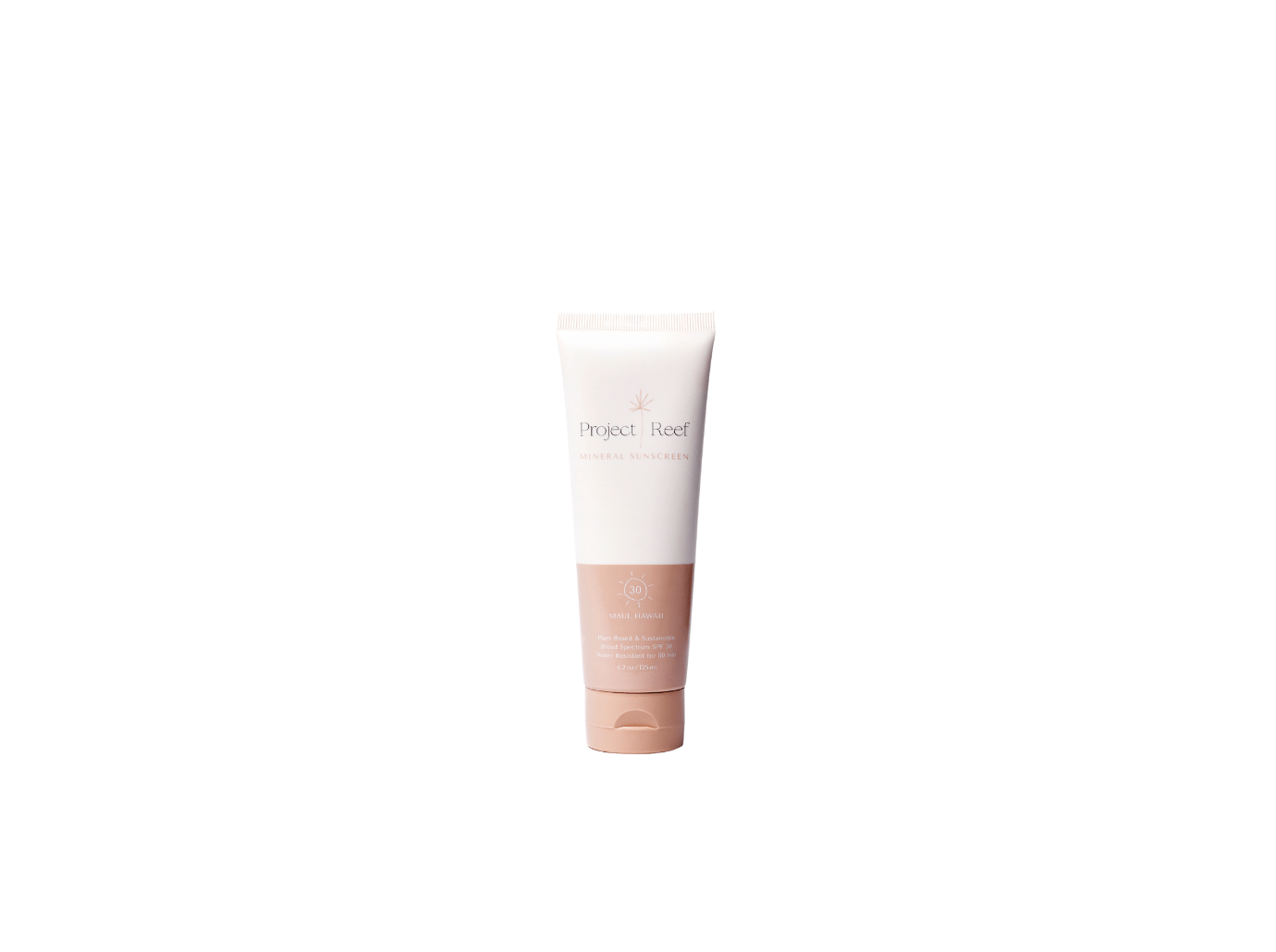
Project Reef Mineral Sunscreen SPF 30 retails for $24 at projectreef.com.
If you’re looking for a mineral sunscreen that’s also environmentally friendly, pick up a bottle of Project Reef’s Mineral Sunscreen SPF 30. The mineral-based sunscreen features reef-friendly non-nano zinc oxide formula to provide broad-spectrum protection as well as skin-loving ingredients like aloe vera, coconut, green tea, pomegranate and raspberry extracts to nourish the skin. Not only will your skin thank you for using Project Reef, but the oceans will as well: each bottle of Project Reef Mineral Sunscreen removes 1-pound of plastic waste from oceans.
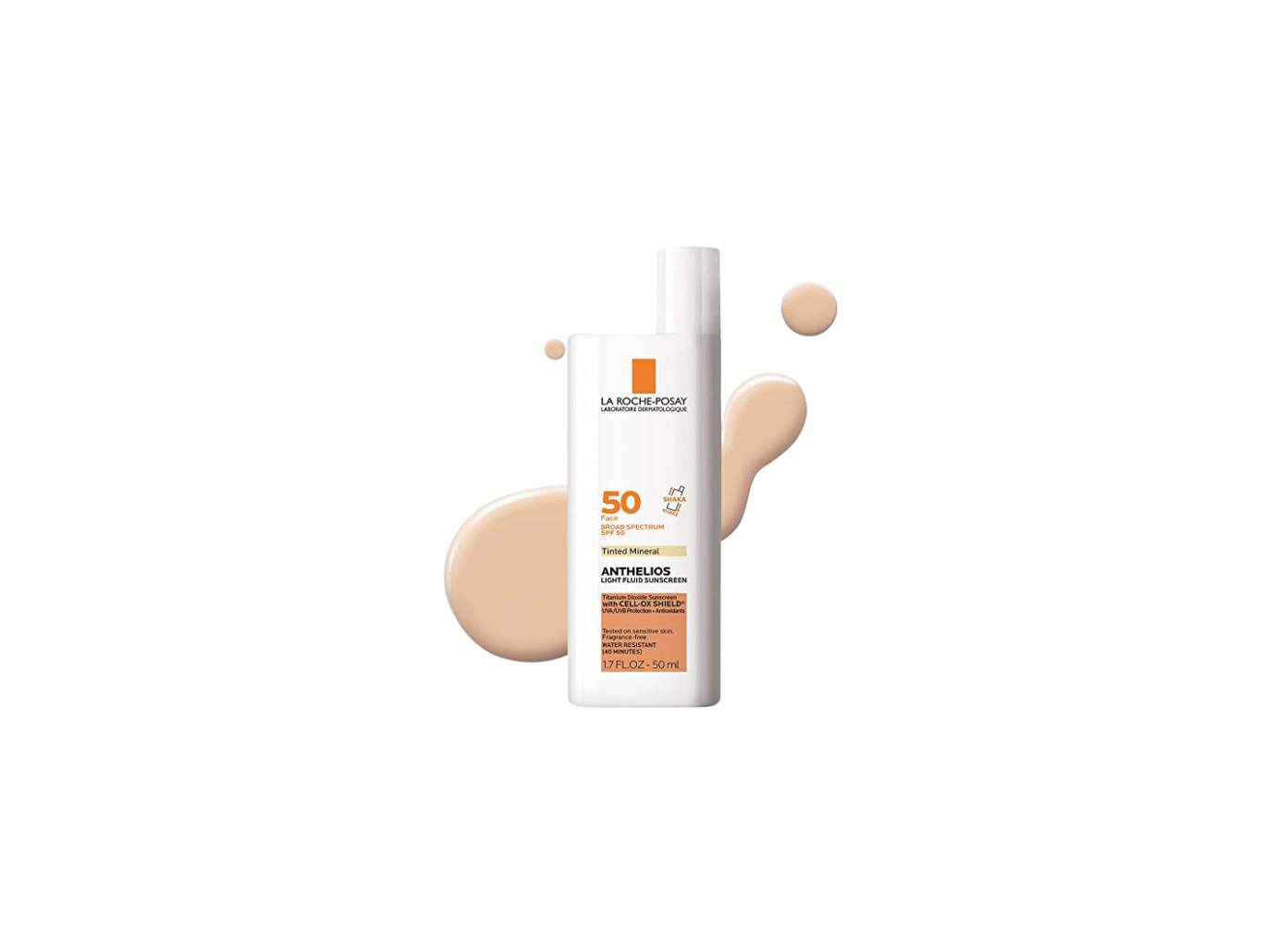
La Roche-Posay Anthelios Tinted Sunscreen SPF 50 retails for $34.99 at amazon.com.
Real Review: “I can't say enough about this sunblock. I have very sensitive, acne prone skin & my skin actually loves this stuff. I've even slept in this sunblock & no breakouts or oily skin. AMAZING! I'm not into wearing much make up anymore, so the tint is perfect.” - Jodi, Amazon customer
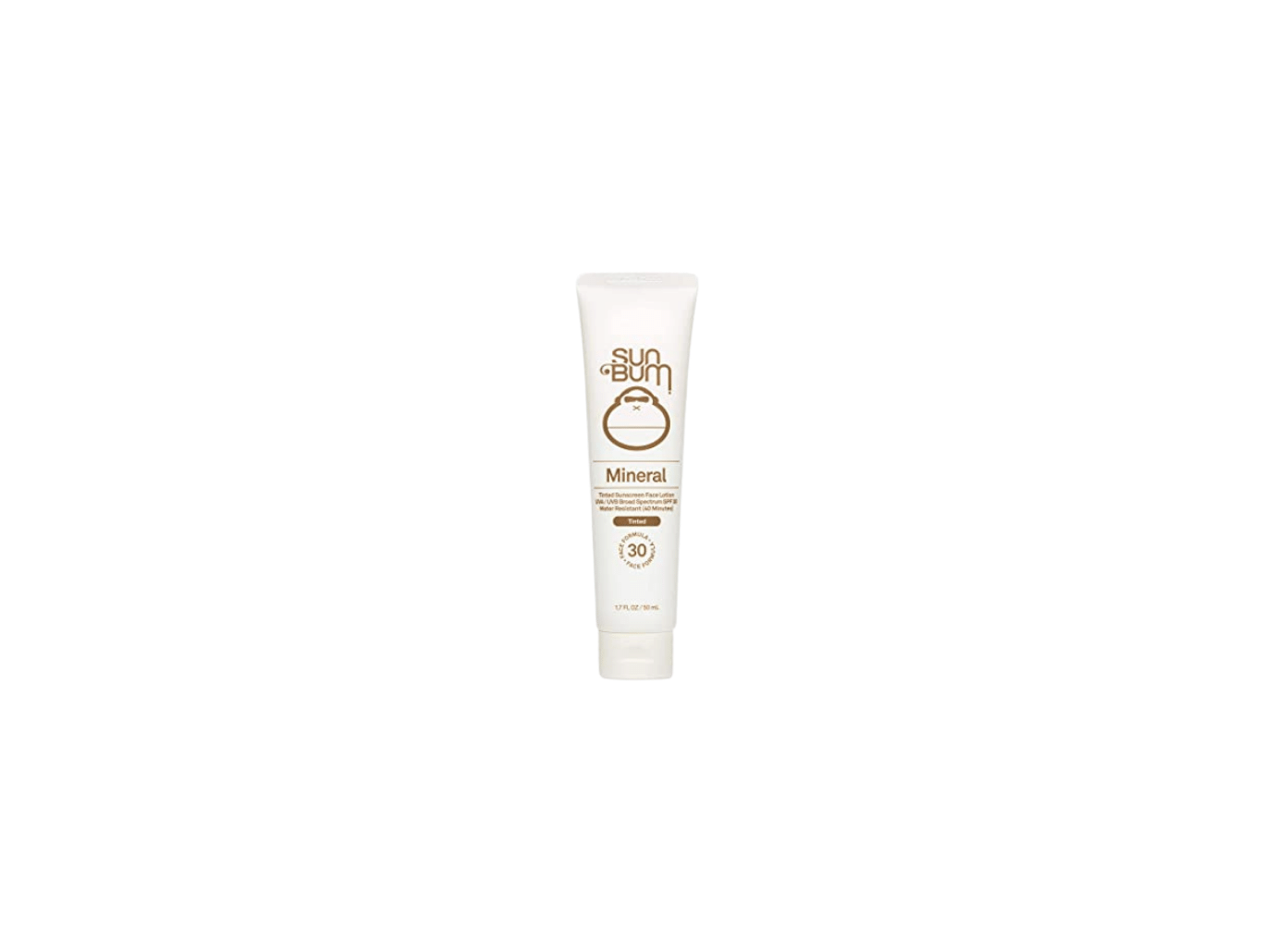
Sun Bum Tinted Mineral SPF 30 Sunscreen retails for $15.83 at amazon.com.
Real Review: “I have been using this for well over a year now, and I can never go back to anything else! It doesn't cause breakouts even when I've slept with it on by accident. I use it instead of a primer under my foundation, and it works amazing. I literally have no complaints; I have not gotten a sunburn since I started using this. I just reapply every few hours when I'm at the beach/pool. I love reapplying because it controls my oil and gives that blurred bb cream effect. I'm also able to put it under my eyes/on my eyelids without burning my eyes. I was never someone who got compliments on my skin, but that changed when I started using this along with the rest of my skincare routine.” - Maya, Amazon customer
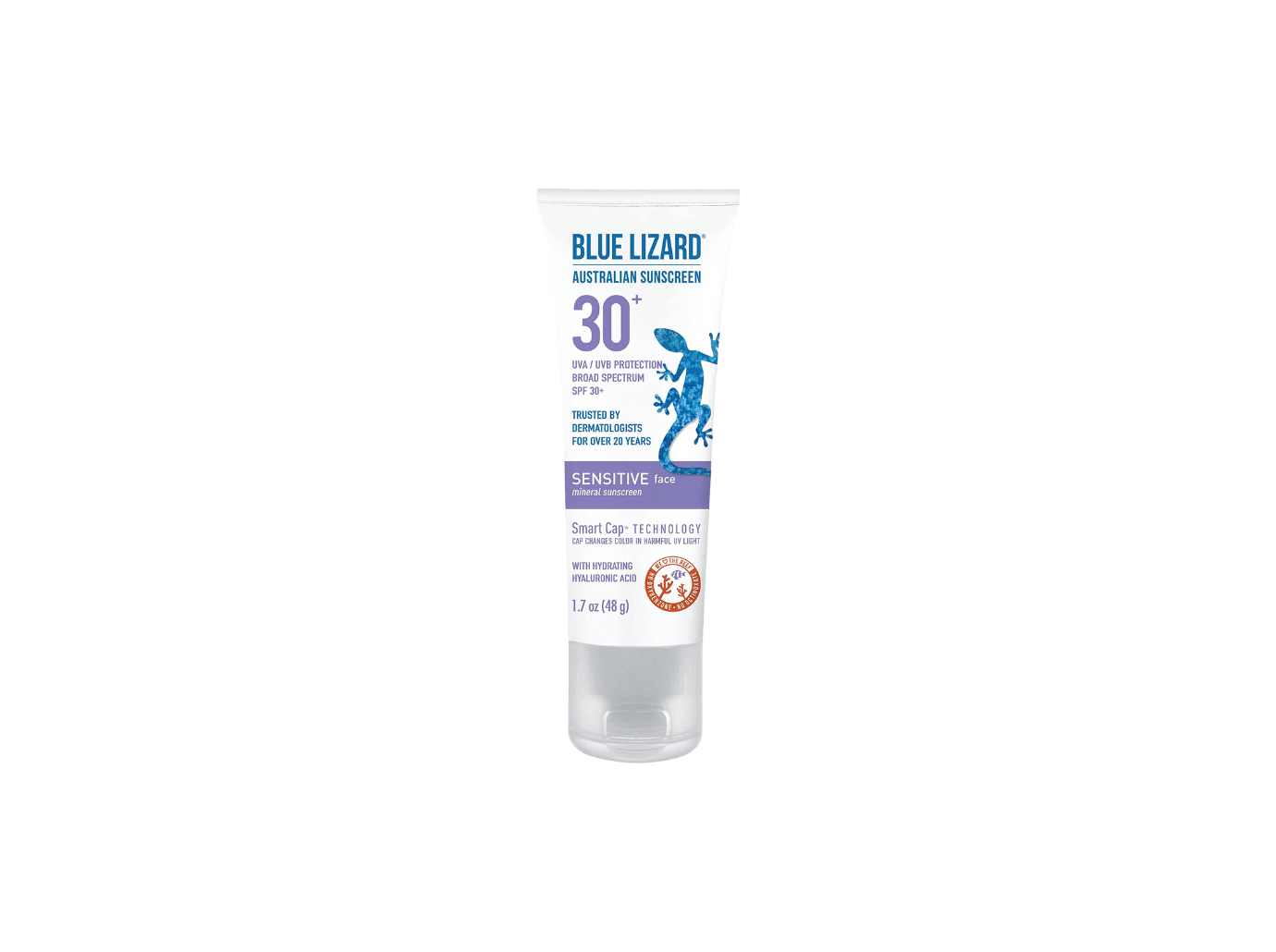
Blue Lizard Sensitive Face Mineral Sunscreen with Zinc Oxide and Hyaluronic Acid SPF 30 retails for $9.99 at amazon.com.
Real Review: “My daughter has really bad eczema and always breaks out with sun exposure. We use Blue Lizard for all over sun protection but recently tried this for her face. We spent an entire day outdoors and her face didn’t break out at all. Worked great and easy to apply.” - Erika, Amazon customer
Want OK! each day? Sign up here!
Best Sunscreens For The Face
Don’t let the word chemical scare you into not using sunscreen. These sunscreens are safe and effective to use and only differ from mineral sunscreens in some of their active ingredients. Chemical sunscreens work differently than mineral sunscreens in that they absorb into the skin and then work to absorb harmful UV rays, convert them into heat and then release from the body. This differs from mineral sunscreens that use ingredients designed to sit on top of the skin and reflect harmful UV rays like a mirror. The following chemical-based sunscreens provide great coverage and protection from the sun, which can also aid in anti-aging.
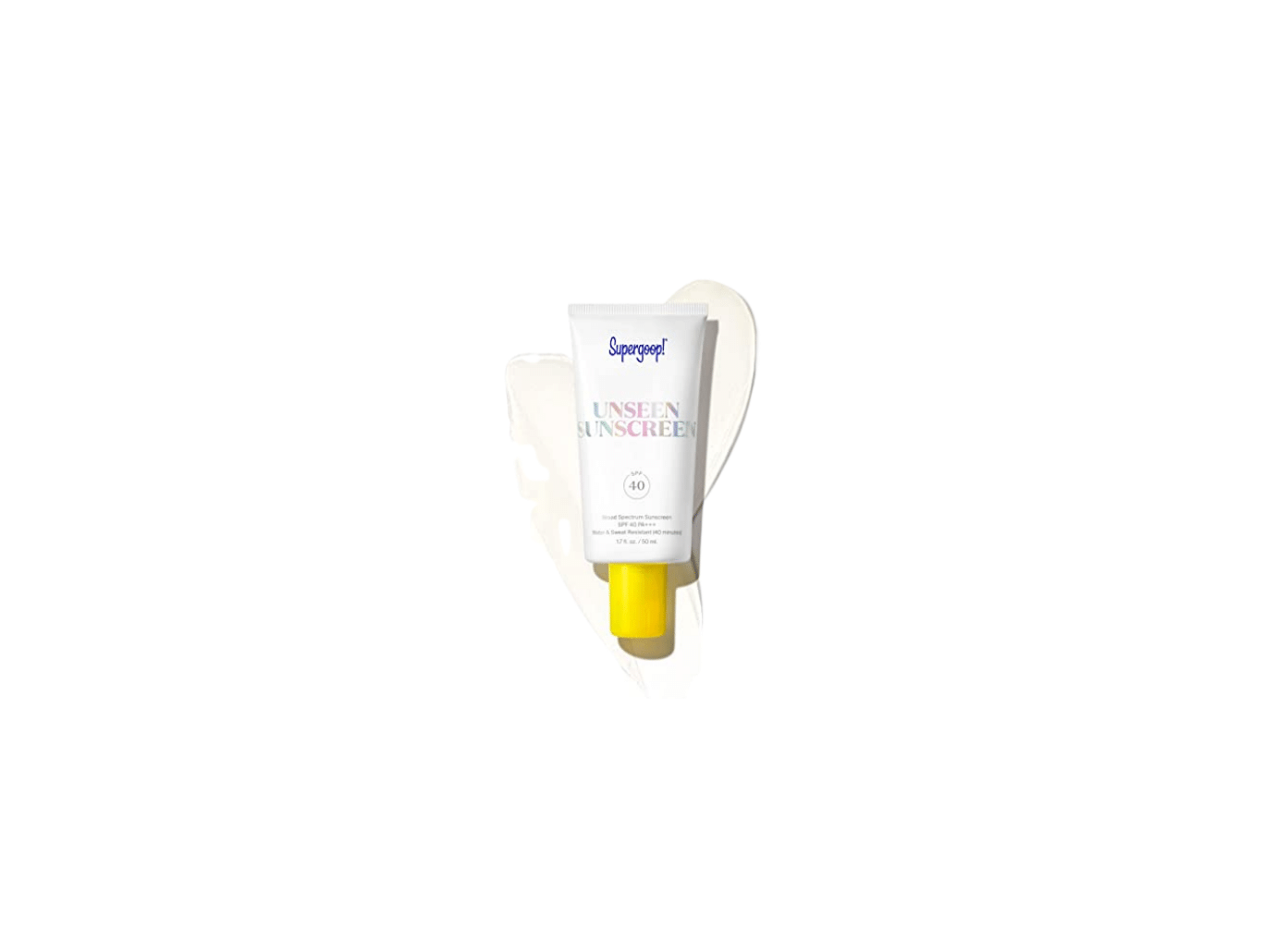
Supergoop! Unseen Sunscreen SPF 40 retails for $36 at amazon.com.
Real Review: “My dermatologist recommended this. I love it. Easy to apply. Feels like silk. Very light on skin and that encourages me to use it every day. I hated the heavy feel of my past sunscreens. I can put this on under or over my moisturizer and/or make up. It may be pricey, but a little goes a long way and its lasted me a couple months, face only, daily use.” - GavinsMom, Amazon customer
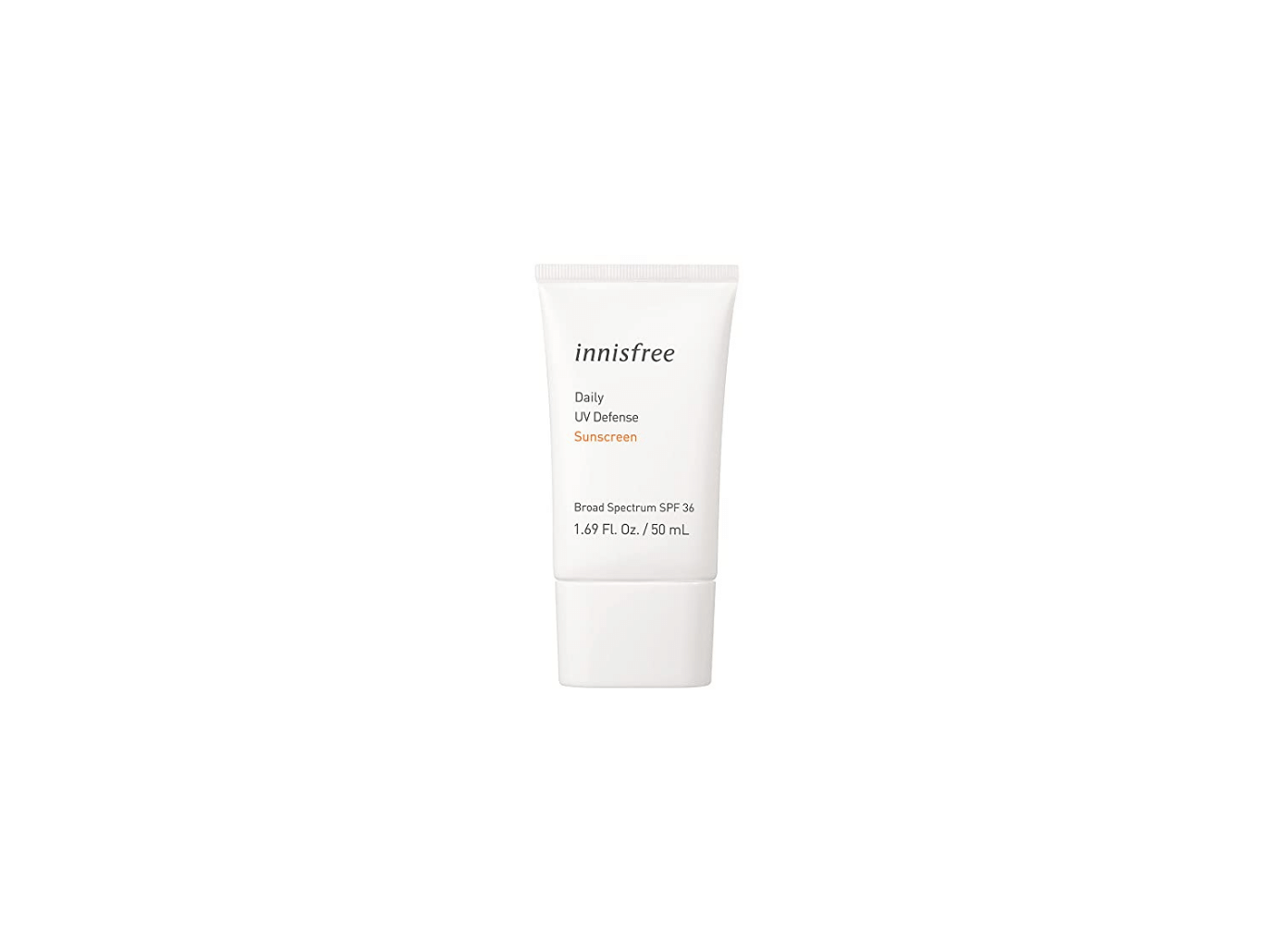
innisfree Daily UV Defense SPF 36 Broad-Spectrum sunscreen retails for $15 at amazon.com.
Real Review: “Love this sunscreen! I have very reactive, sensitive and oily skin. My skin loved this product! No reaction! No redness upon application which is what often happens with other products. No irritation or rash which is what often happens with sunscreen. Kept the oilies at bay while my skin felt moisturized. In the evening when I removed my make-up my skin felt great.” - Rose, Amazon customer
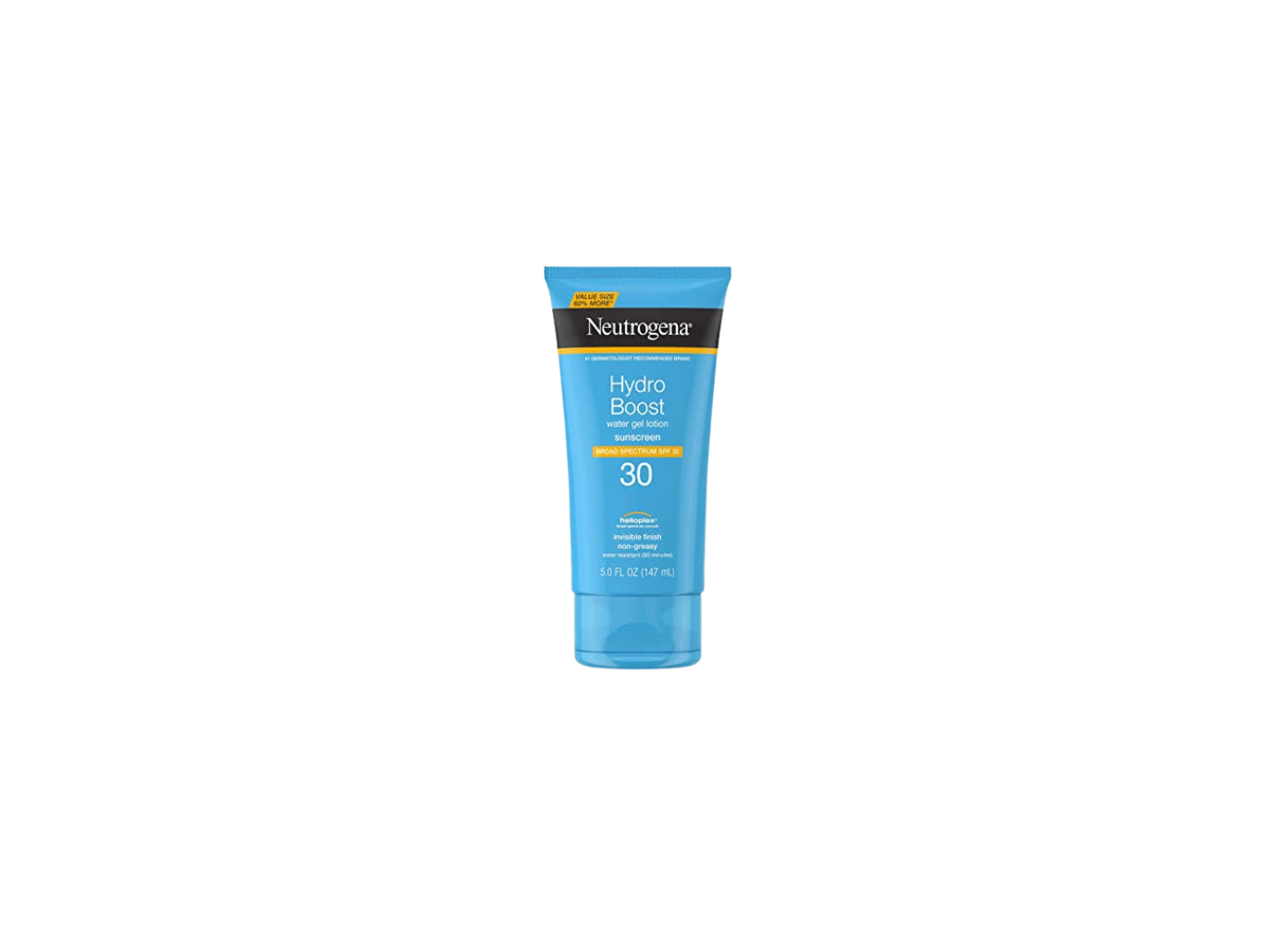
Neutrogena Hydro Boost Water Gel Non-Greasy Moisturizing Sunscreen Lotion with Broad-Spectrum SPF 30 retails for $13.97 at amazon.com.
Real Review: “I love this stuff, and it’s so hard to find ! The SPF 30 formula is perfect for my combination, acne-prone, sensitive skin. It delivers lightweight hydration without leaving my skin oily. The finish is not quite matte, but slightly dewy. It doesn’t break me out as heavier products do. The scent is almost undetectable, so it doesn’t irritate my skin. It can be used under makeup without issue. I like this formula so much better than the SPF 50 version, which leaves my skin oily. Buy it! Or don’t= more for me :)” - Keith, Amazon customer
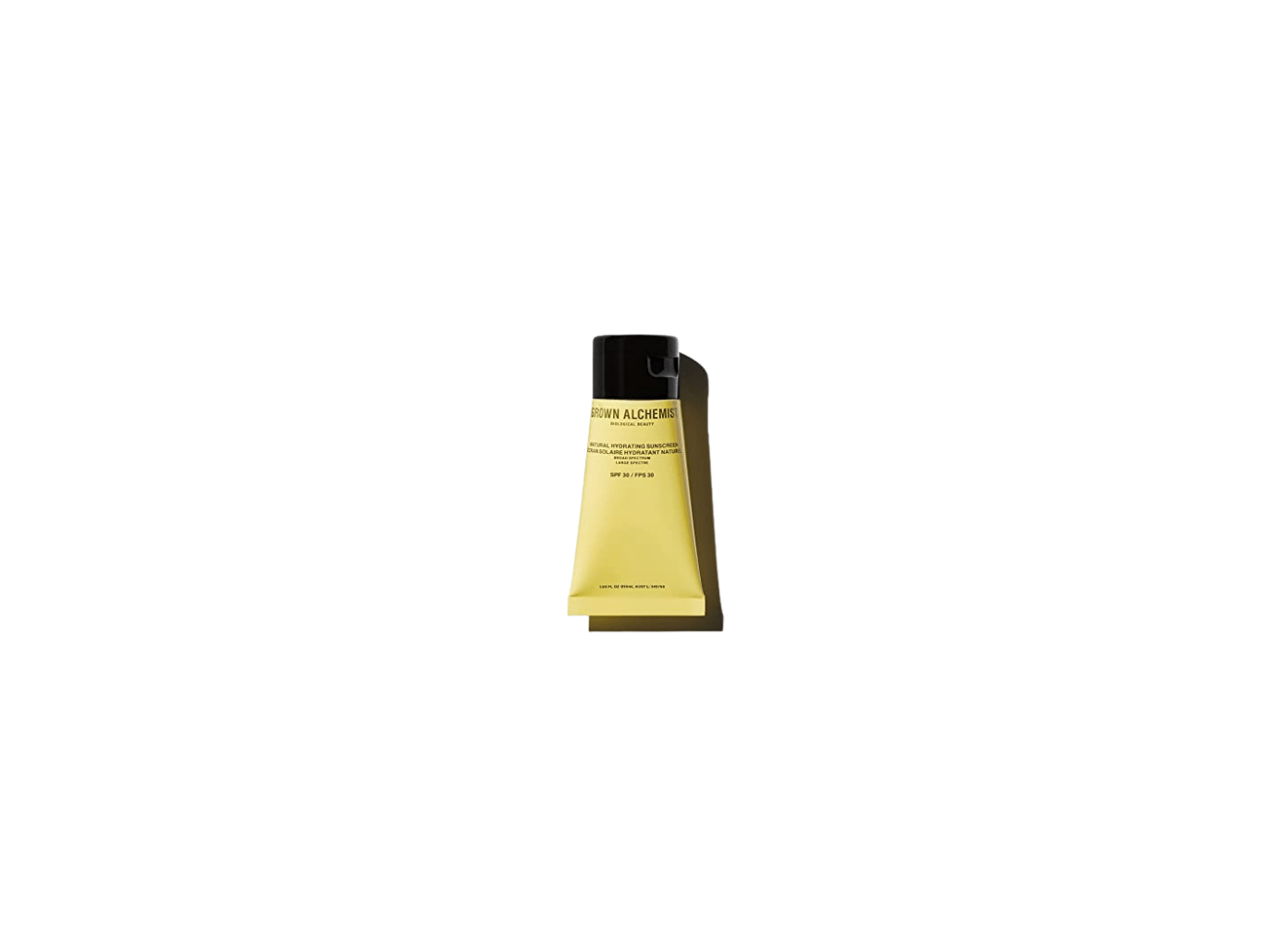
Grown Alchemist Natural Hydrating Sunscreen SPF 30 retails for $39 at amazon.com.
Real Review: “This sunscreen is wonderful on the skin and I love all of the products. Perfect skin!!!!!” - Harry, Amazon customer
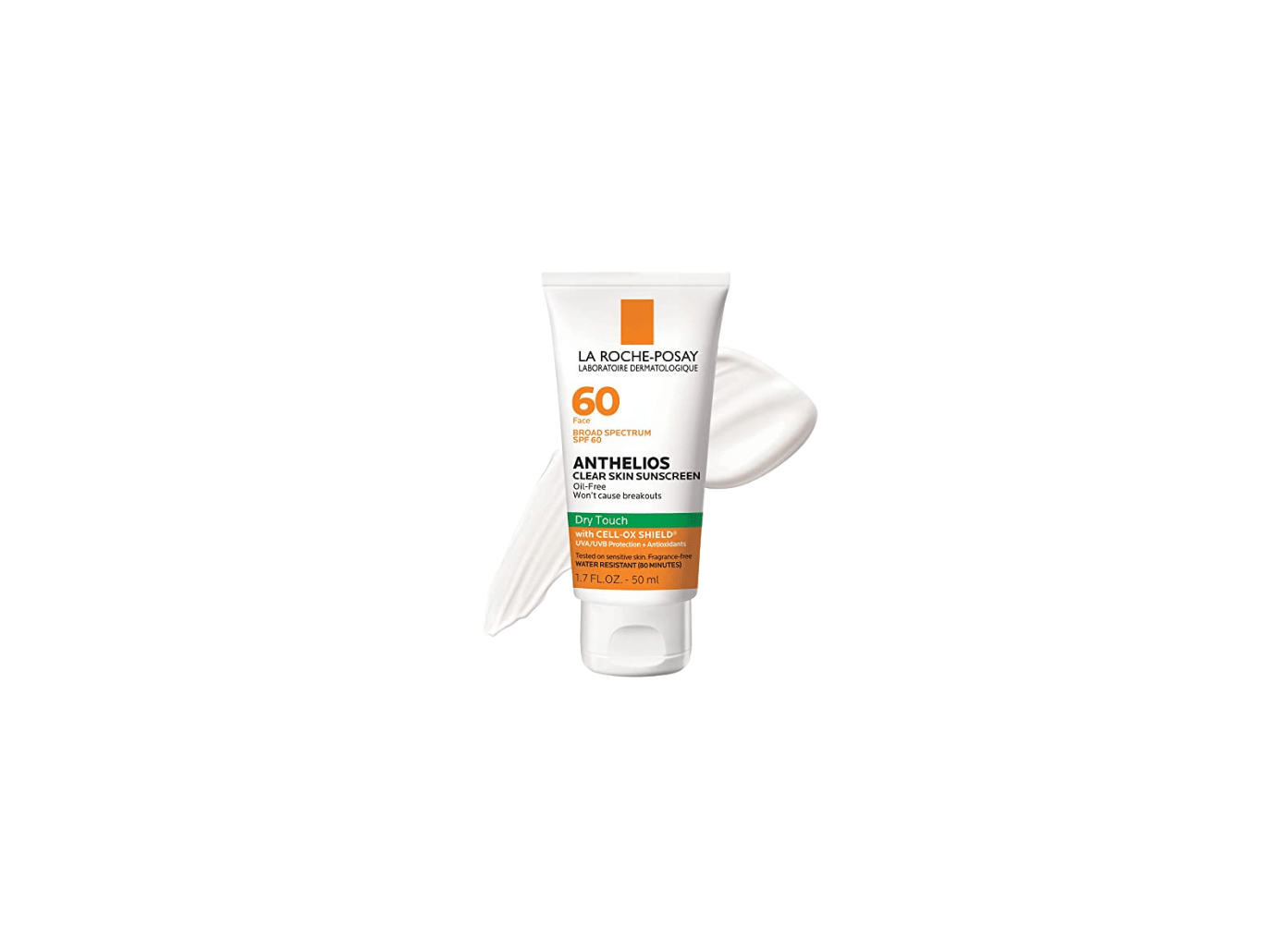
La Roche-Posay Anthelios Clear Skin Dry Touch SPF 60 retails for $19.99 at amazon.com.
Real Review: “…This product has a really nice, smooth, rich texture. I am pale so the white product blends into my skin very well, after application my skin looks and feels dry to the touch without making you feel like your skin is dehydrated. (As can happen with many mattifying products). Honestly most weekends I end up going out with just this and no makeup, that's how good it looks. It is a little expensive but seriously it's so worth it!” -NB619, Amazon customer
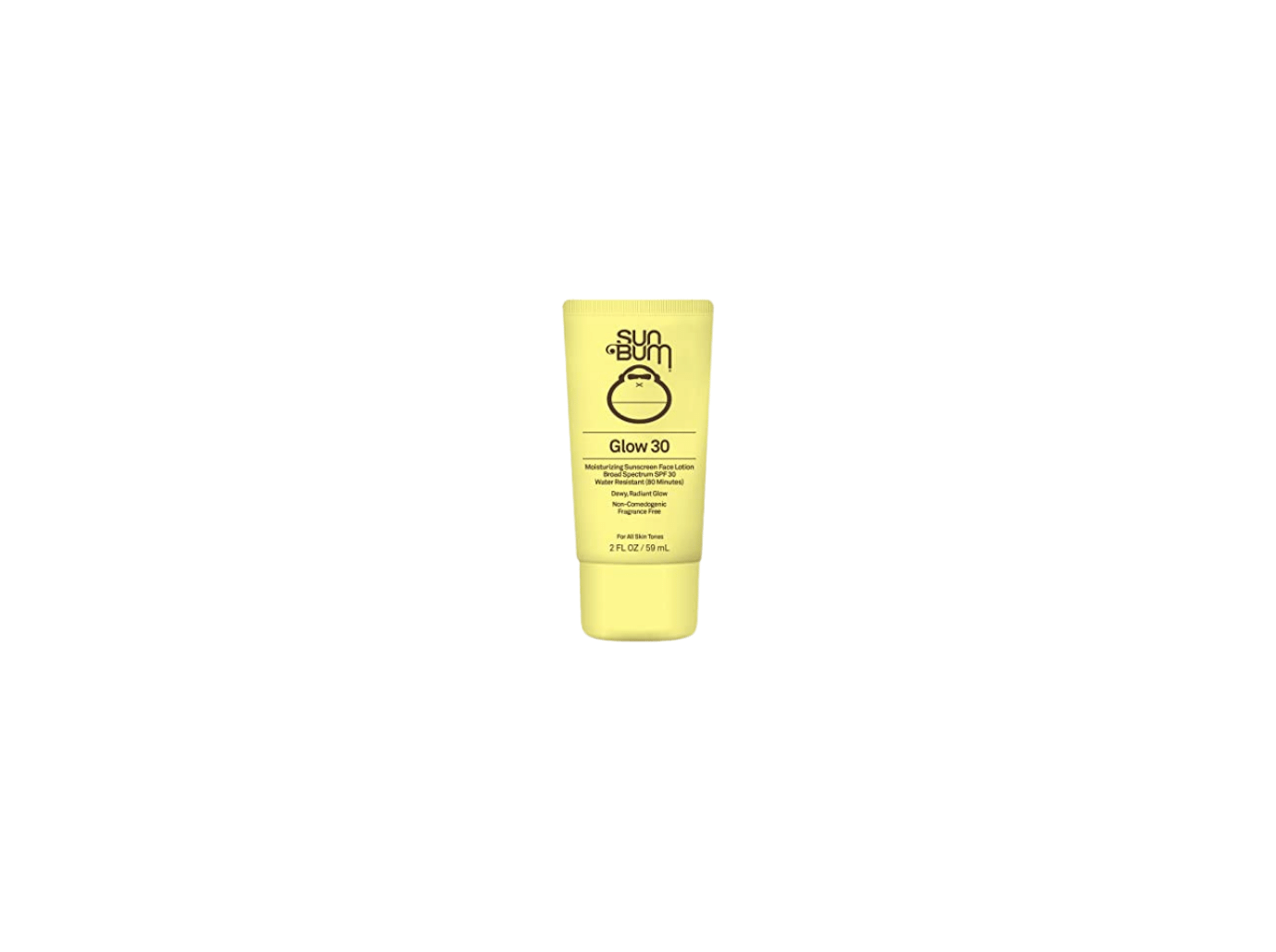
Sun Bum Glow 30 Sunscreen retails for $15.97 at amazon.com.
Real Review: “Beautiful glow. It even works with my fair skin.” - Annie, Amazon customer
What’s The Difference In SPF 30 VS. SPF 50?
One of the biggest factors in deciding on a sunscreen is its SPF protection. There are many nuances to SPF protection and the ingredients that make up the formula. For example, when choosing between a sunscreen with SPF 30 or SPF 50, it’s best to opt for the higher number as it guarantees to block a higher percentage of harmful UV rays. Generally speaking, SPF 30 is the lowest recommended amount and should be used as a starting point for SPF protection. That being said, just because a sunscreen yields a higher SPF, that does not necessarily guarantee that it will be more effective than a lower SPF, depending on use.
This is where shopping for sunscreen can be tricky, as it’s not an intuitive process. Keep in mind that no SPF will block 100% of harmful UV rays and a sunscreen’s efficacy is heavily dependent upon its usage. For example, you could have a lower strength SPF but have greater protection against UV rays due to liberal and continuous application throughout the day. Just because an SPF totes a higher strength does not mean it’s a one and done fix to sun care. All sunscreens require continuous application throughout the day with wear for best results.
Is Zinc Oxide Sunscreen Safe?
Zinc Oxide is an active ingredient in many sunscreens due to its ability to protect the skin without irritation. Generally speaking, zinc oxide-based sunscreens are gentle on the skin and do not cause irritation, making them a good choice for those with acne prone or sensitive skin. Additionally, not all sunscreens provide broad or full spectrum protection against all of the sun’s harmful rays, while zinc oxide-based sunscreens do offer broad spectrum protection (UVA/UVB), which is what’s recommended to look for in a formula. This being said, zinc is not without its own controversies.
Nano zinc oxide particles have been found to be harmful to coral reefs and marine life and are linked to causing coral bleaching. This being said, non-nano zinc oxide is safe for coral reefs and marine life. When it comes to sunscreen that contains zinc oxide, be sure to opt for non-nano zinc oxide-based formulas that are reef friendly. Another controversy with zinc-based sunscreens is a white cast that can be left behind upon application (insert mental image of Mark Zuckerberg here) which can result in an unflattering appearance, especially for darker skin tones. Don’t let this deter you from using zinc oxide-based formulas, as there are many new sunscreens that leave no white cast yet deliver broad spectrum protection. Lastly, most sunscreens require a waiting period before SPF properties have fully absorbed into the skin. Zinc oxide-based sunscreens work almost immediately, which is great for reapplication and busy lifestyles. Zinc oxide acts as a physical blocker to UV rays on the skin (like a mirror) which allows the formula a jumpstart on sun protection. While it may be tempting to wait, you should always apply sunscreen prior to being in direct sunlight, even with zinc oxide-based formulas.
Is Mineral Sunscreen Better Than Chemical Sunscreen?
This is a controversial topic amongst health and beauty communities, and generally speaking, the term "chemical" in products tends to set off alarm bells for most consumers. This is not necessarily a bad thing as it’s always useful to double check and look into what you’re putting in your body. Remember, the epidermis (skin) is an organ, so what you apply to it is consumed by the body. That being said, not all chemical sunscreens are harmful, and there are many misleading myths surrounding chemical sunscreens. When it comes to chemical sunscreens, major ingredient oxybenzone is the usual target of sun care concerns, but it's also the most common and effective ingredient against UV rays and is FDA approved.
Oxybenzone is an organic compound that is naturally occurring and can be found in flowering plants. Oxybenzone is one of the most effective ingredients in sun care products but can be seen as harmful to people due to its ability to affect hormones. Additionally, its properties have been linked to skin and eye irritations in certain products. This being said, it’s not toxic in the way that most consumers take the word as. Sunscreen containing oxybenzone will not cause you to foam at the mouth, but chemical-based sunscreens have been linked to skin irritations as well as environmental concerns. Many consumers would like to stay away from chemicals all together and opt for mineral-based sunscreen instead. Mineral sunscreens are effective against harmful UV rays even sans chemicals. Remember, no sunscreen is perfect, and the best sunscreen is the one you will apply daily.


